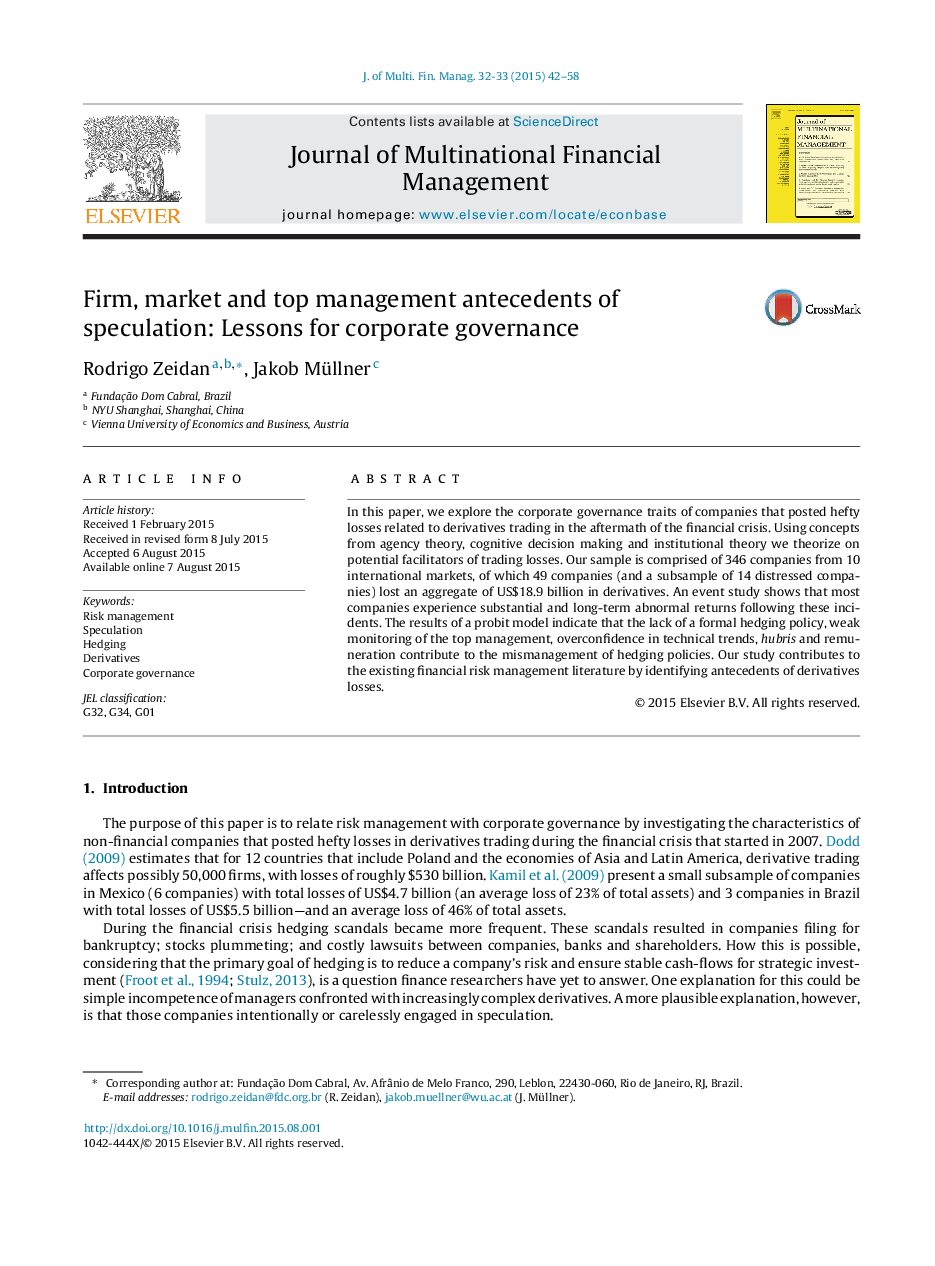| Article ID | Journal | Published Year | Pages | File Type |
|---|---|---|---|---|
| 968500 | Journal of Multinational Financial Management | 2015 | 17 Pages |
•We integrate agency and finance theory into a model of corporate speculation.•Lack of formal hedging policies and weak monitoring facilitate speculation.•Hubris proxy variables and overconfidence in trends contribute to speculation.•Higher ownership concentration leads to less speculation for distressed companies.•Regulators should change disclosure policies regarding derivatives instruments.
In this paper, we explore the corporate governance traits of companies that posted hefty losses related to derivatives trading in the aftermath of the financial crisis. Using concepts from agency theory, cognitive decision making and institutional theory we theorize on potential facilitators of trading losses. Our sample is comprised of 346 companies from 10 international markets, of which 49 companies (and a subsample of 14 distressed companies) lost an aggregate of US$18.9 billion in derivatives. An event study shows that most companies experience substantial and long-term abnormal returns following these incidents. The results of a probit model indicate that the lack of a formal hedging policy, weak monitoring of the top management, overconfidence in technical trends, hubris and remuneration contribute to the mismanagement of hedging policies. Our study contributes to the existing financial risk management literature by identifying antecedents of derivatives losses.
